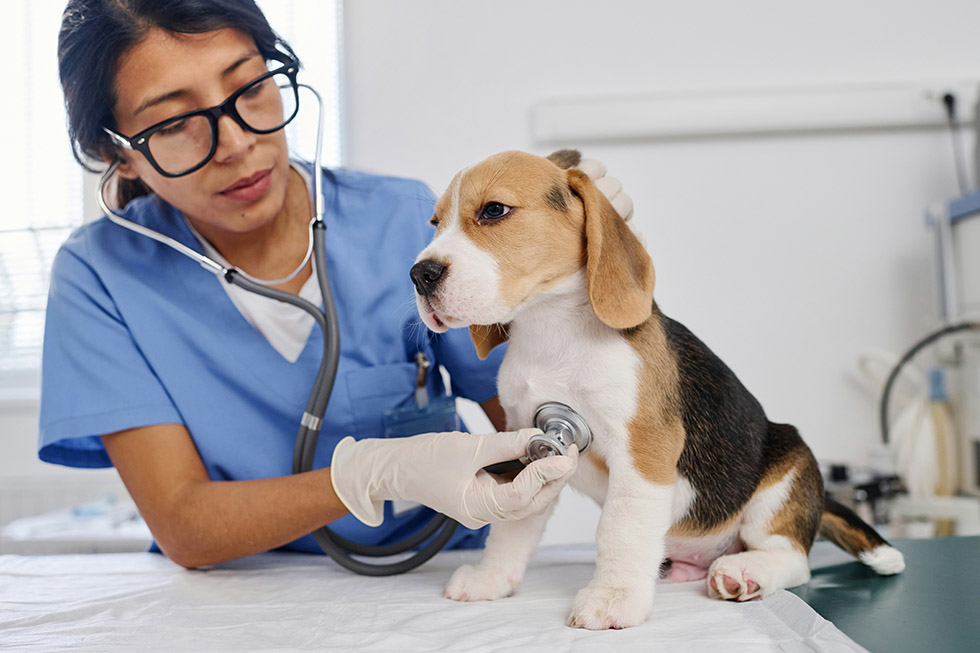Announcement posted by Pet Insurance Australia 16 May 2024
Australia, [May 2024]: As Australians face mounting financial pressures, recent research has revealed concerning trends in pet healthcare. Over 50% of pet owners are adjusting their approach to their pet's well-being due to economic constraints, which raises serious concerns about the health and welfare of our beloved companions.
Nadia Crighton, spokesperson for Pet Insurance Australia, emphasises, "The results of the latest survey* underscore the profound impact of financial strain on pet healthcare decisions nationwide."
The study found that 21.5% of pet guardians are scaling back on regular check-ups and preventive care appointments. Additionally, nearly 13% are forgoing essential treatments for fleas, ticks, and worms. This trend is particularly worrisome given the extended tick season observed recently, which refers to a longer period of the year when ticks are active and can cause health issues in pets. This could lead to a surge in tick-related illnesses, posing significant challenges for veterinary practices nationwide.
Furthermore, data indicates that over 20% of pet owners are delaying seeking veterinary care for minor issues, such as injuries or illnesses. This delay can escalate conditions, leading to higher costs and increased complexity of treatment when eventually addressed by a veterinarian. It's important to note that delayed care can also lead to unnecessary suffering for pets.
"While postponing vet visits for minor concerns might seem financially prudent initially, it can result in exacerbated health issues for pets and higher expenses for owners in the long term," warns Nadia Crighton. "Timely veterinary intervention is crucial in preventing minor ailments from developing into more serious and costly conditions."
Pet Insurance Australia strongly advocates for proactive pet healthcare. We urge pet owners to take charge of their pet's health by prioritising regular vet check-ups and preventive treatments.

The Real Costs Unveiled
Adding to the financial burden are the rising costs of treating common dog ailments, which refers to the increasing prices of medications, treatments, and surgeries for these health conditions. Pet Insurance Australia data highlights the average treatment costs for some of the top dog health conditions:
Under One-Year-Old Pups:
During puppyhood, gastrointestinal disturbances frequently occur, often sparked by ingesting unsuitable objects, sudden dietary shifts, or stress induced by environmental changes. Their developing immune systems render them more vulnerable to skin infections, which can be incited during playful exploration.
- Gastrointestinal Disease: Average cost for treatment - $661, highest cost for treatment - $25,939.
- Skin Infection/Allergy: Average cost for treatment - $346, highest cost for treatment - $8,414.
- Ear Infection: Average cost for treatment - $330, Highest cost for treatment - $12,380.
One- to Eight-Year-Old Dogs
As dogs grow older, their inclination to ingest harmful items generally diminishes. Nevertheless, conditions such as ear infections, skin issues, and gastrointestinal problems persist into adulthood, influenced by factors like dietary sensitivities, environmental stimuli, and genetic predispositions.
- Skin Infection/Allergy: The average cost for treatment is $586, and the Highest cost is $20,622.
- Ear Infection: Average cost for treatment - $399, Highest cost for treatment - $20,654.
- Gastrointestinal Disease: Average cost for treatment - $812, Highest cost for treatment - $26,435.
Dogs 8+ Years of Age
As dogs enter their senior phase, they become increasingly susceptible to health ailments such as arthritis and cancer. This heightened vulnerability arises from the cumulative impacts of aging, encompassing cellular transformations, a waning immune system, and the gradual wear and tear on joints over the years.
- Skin Infection/Allergy: Average cost for treatment - $601, highest cost for treatment - $10,596.
- Arthritis: Average cost for treatment - $692, Highest cost for treatment - $12,387.
- Cancer/Tumors: The average cost for treatment is $1,514, and the Highest cost is $37,133.
"Additionally, ingesting toxins and foreign bodies poses significant risks and financial burdens for pet owners," Crighton says. The average costs are $1,064 without surgery and an eyewatering $41,671, on the larger scale, with surgery."
Pet owners are encouraged to prioritise preventive measures, such as regular vet check-ups, pet-proofing their homes, and investigating a savings fund or a pet insurance policy to help ensure their furry companions receive the care they need without undue financial strain.
*PetSure Data

